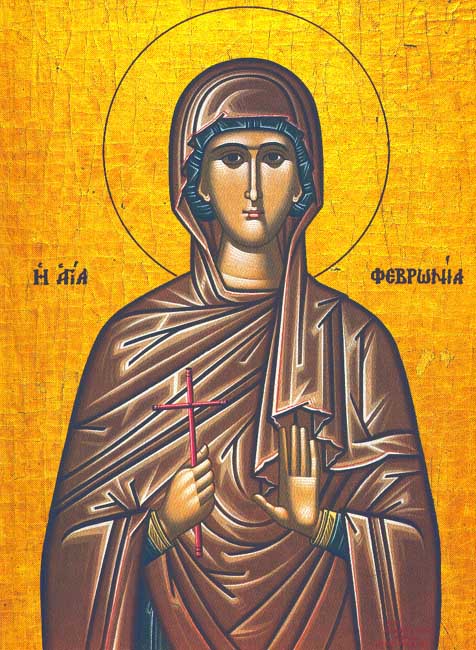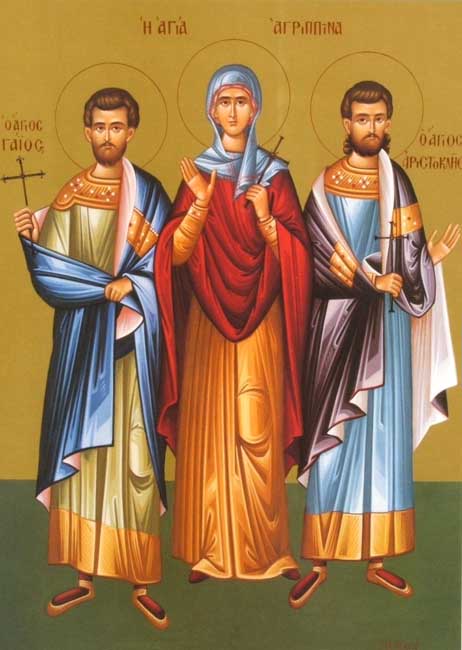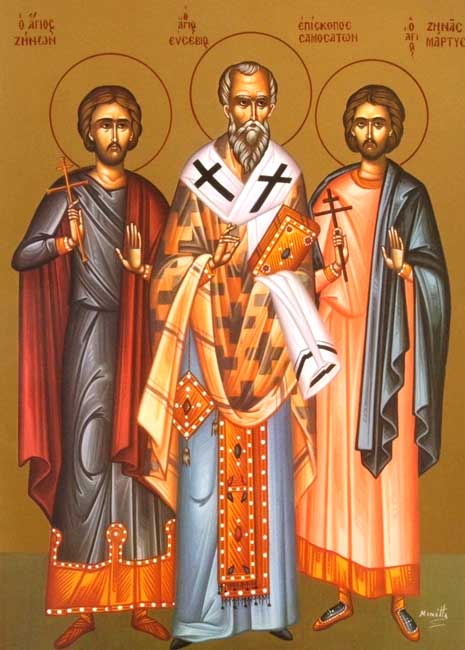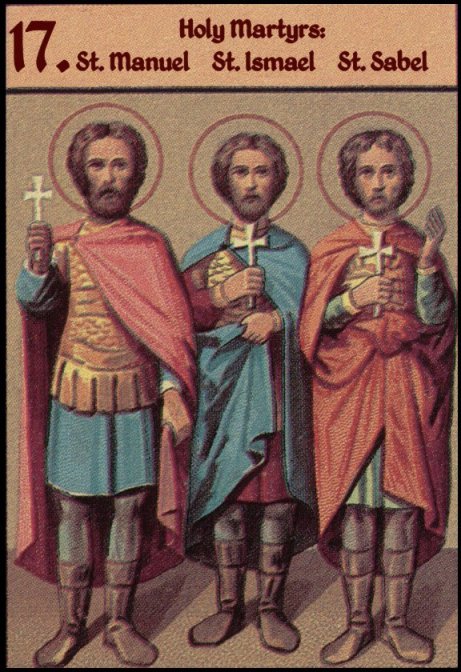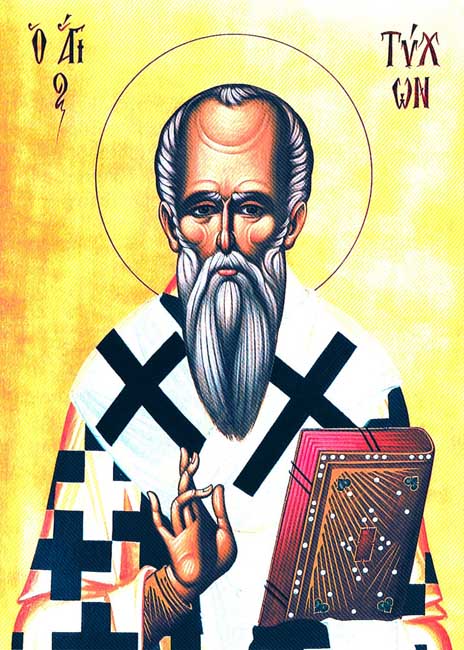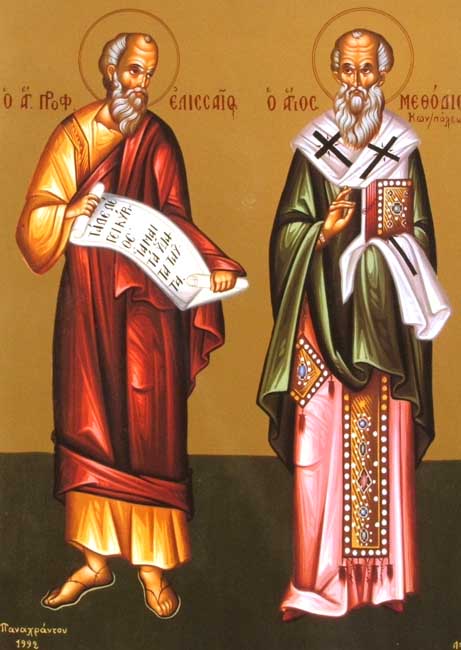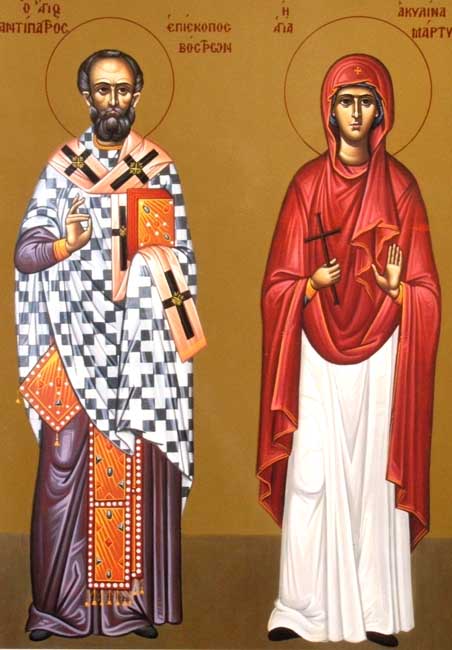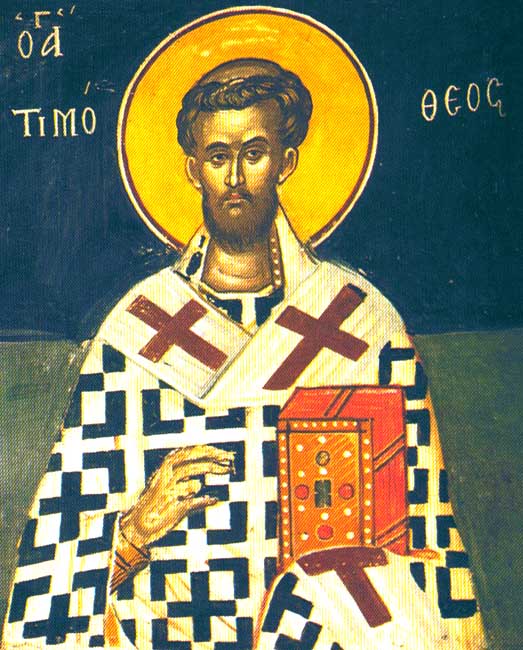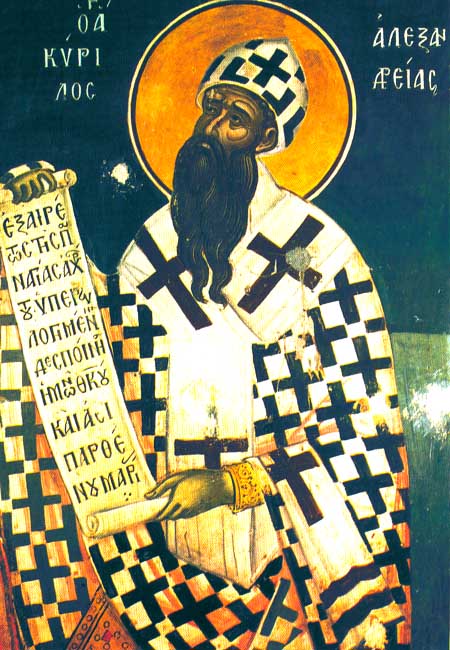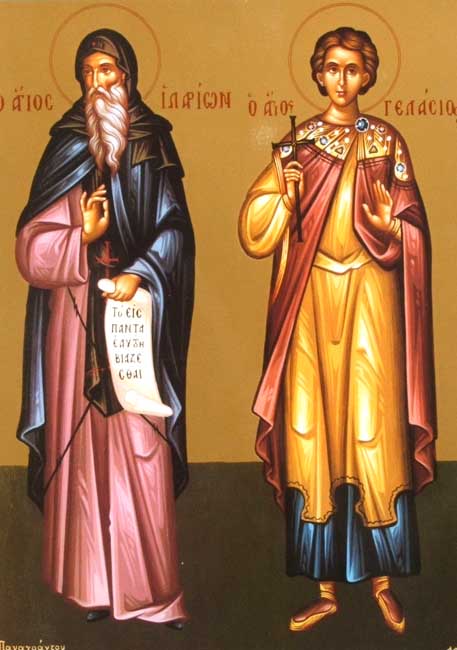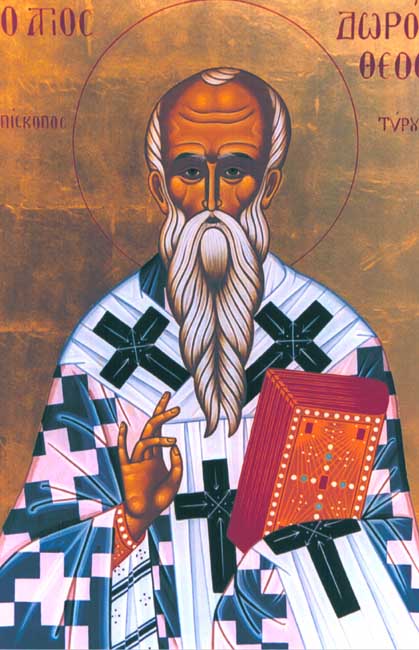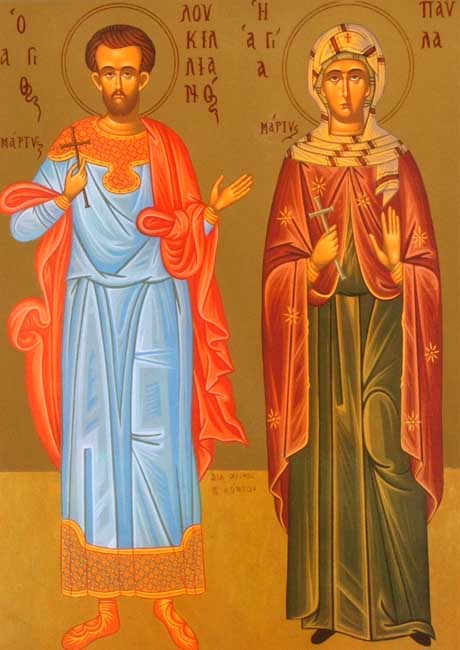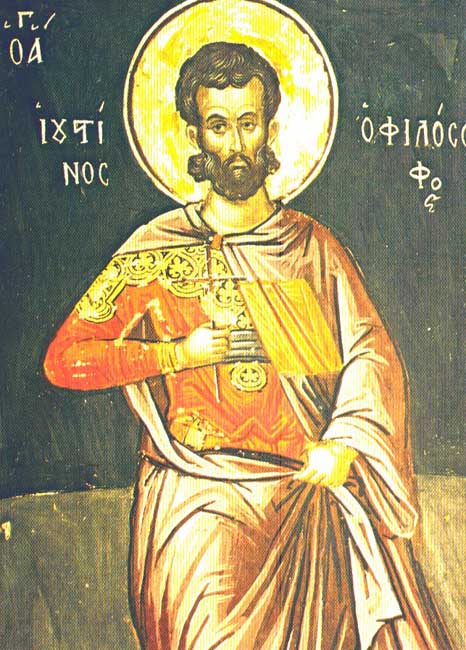The Holy Apostles Bartholomew

Bartholomew was one of the Twelve Great
Apostles. In all probability, it appears that Bartholomew and
Nathaniel are one and the same person. He was a companion of the
Apostle Philip and Philip's sister, the virgin Mariamna and, for some
time, a companion of St. John the Theologian. Bartholomew preached
the Gospel first throughout Asia and, after that, in India and
finally in Armenia where he died a martyr's death. In Hierapolis,
these holy apostles by prayer, caused the death of a large serpent
which the heathens kept in their temple and worshipped. In this same
city and, by prayer, they restored sight to Stachius who was blind
for forty years. It was here that a mob rose up against them and they
crucified Philip and Bartholomew (Bartholomew was crucified upside
down). At this time, an earthquake occurred in which the evil judges
and may people perished. Feeling that this was a punishment from God,
many ran to remove the apostles from the crosses but Philip was
already dead while Bartholomew was still alive. After this,
Bartholomew went to India where he preached and translated the Gospel
of St. Matthew into the Indian language. Following this, he entered
Armenia where he cured the daughter of the king from insanity. But
the envious brother of King Astyages seized God's apostle, crucified
him on a cross, skinned him and finally beheaded him in Armenian
Albanopolis [Derbend]. Christians honorably buried his body in a lead
sarcophagus. Because many miracles occurred over his relics, the
pagans took the sarcophagus and tossed it into the sea. But the water
carried the sarcophagus to the Island of Lipara where Bishop Agathon,
through a revelation in a dream, met and buried it in the church. St.
Bartholomew, attired in a white garment, appeared in church to
Venerable Joseph, the Hymnographer, blessed him with the Gospel that
he may be able to sing spiritual hymns saying: "Let heavenly
waters of wisdom flow from your tongue!" He also appeared to
Emperor Anastasius (491-518 A.D.) and told him that he would protect
the newly established town of Dara. Later, the relics of this great
apostle were translated to Benevento and then to Rome. Great and
awesome miracles have occurred over these relics.
The Holy Apostles Barnabas
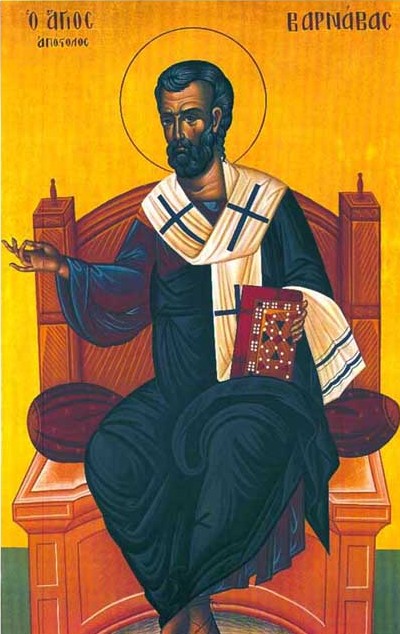
Barnabas was one of the Seventy
Apostles. He was born in Cyprus of wealthy parents from the tribe of
Levi and studied together with Saul under Gamaliel. At first, he was
called Joseph but the apostles then called him Barnabas, Son of
Consolation, because he was exceptionally capable of comforting the
souls of the people. After Saul's conversion, Barnabas was the first
to introduce Saul to the apostles and after that, with Paul [Saul]
and Mark he preached the Gospel in Antioch and throughout other
places. In all probability, he was the first to preach in Rome and
Milan. He suffered on the island of Cyprus at the hands of the Jews
and was buried by Mark beyond the western gate of the town of Salamis
with the Gospel of St. Matthew on his chest which he, by his own
hand, had copied. His grave remained unknown for several hundred
years and since many received healing from sickness on this spot,
this place was called: "the place of health." At the time
of Emperor Zeno and the Chalcedon Council [451 A.D.], the apostle
appeared to Archbishop Anthemius of Cyprus on three successive nights
in a dream and revealed to him the location of Barnabas' grave. That
appearance of the apostle occurred exactly at the time when Peter,
the power-hungry Patriarch of Antioch, sought that the church in
Cyprus be under the jurisdiction of the throne of Antioch. After the
appearance and discovery of the miraculous relics of the holy Apostle
Barnabas, it was established that the church in Cyprus, as an
Apostolic Church, should always be independent. Thus, the autocephaly
of the Church in Cyprus was established.
 David was born in Thessalonica. At
first, he lived a life of asceticism in the proximity of Thessalonica
in a hut built beneath an almond tree. Later, he continued his
asceticism in Thessaly. So much did he purify himself by fasting,
prayer and all-night vigils that he was made worthy to receive great
grace from God. Once he took live coals in his hand, placed incense
on the coals and censed the emperor without any injury to his hand.
Seeing this, the emperor bowed down to the ground before him. He
amazed many people by his numerous miracles. He died peacefully and
took up habitation in eternal blessedness in the year 540 A.D.
David was born in Thessalonica. At
first, he lived a life of asceticism in the proximity of Thessalonica
in a hut built beneath an almond tree. Later, he continued his
asceticism in Thessaly. So much did he purify himself by fasting,
prayer and all-night vigils that he was made worthy to receive great
grace from God. Once he took live coals in his hand, placed incense
on the coals and censed the emperor without any injury to his hand.
Seeing this, the emperor bowed down to the ground before him. He
amazed many people by his numerous miracles. He died peacefully and
took up habitation in eternal blessedness in the year 540 A.D.